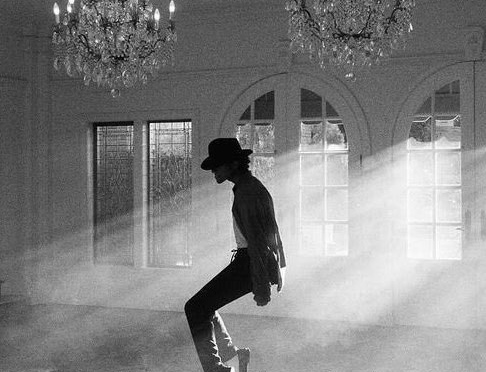In an era where musical biopics continue to crescendo across the cinematic landscape—see Bohemian Rhapsody, Rocketman, Elvis, and the upcoming Back to Black—Lionsgate’s Michael has long stood as one of the most anticipated. Touted as the definitive screen portrayal of Michael Jackson, the most iconic and enigmatic pop star in history, the film is directed by Antoine Fuqua (Training Day, Emancipation) and produced by Graham King, the Oscar-winning force behind Bohemian Rhapsody. But now, that promise will have to wait.
On May 30, during Lionsgate’s Q4 fiscal 2025 earnings call, CEO Jon Feltheimer revealed that Michael is expected to be pushed out of the company’s fiscal 2026 reporting and into fiscal 2027—meaning its release won’t occur until sometime after March 2026. “We’re excited about the three and a half hours of amazing footage from producer Graham King and director Antoine Fuqua,” Feltheimer said, adding that a definitive release strategy will be disclosed “in the next few weeks.”
Three and a half hours. That’s not just a biopic. That’s an epic.
Legacy at Stake: Why Michael Matters
Michael Jackson’s story is, without exaggeration, one of the most complex cultural narratives of the 20th and 21st centuries. A child prodigy who became the King of Pop, Jackson redefined global stardom with an artistic impact that transcended race, genre, and medium. But his legacy is also marked by controversy, tabloid obsession, and multiple allegations of sexual misconduct—an unresolved aspect that continues to polarize fans and critics alike.
Any biopic attempting to encapsulate such a figure does not merely court interest; it courts fire. Lionsgate, King, and Fuqua aren’t just making a film—they’re making a statement. And they’re doing it at a time when Jackson’s legacy has never been more contested.
The delay into 2026–27, then, is not a small footnote in a quarterly earnings call. It is a pivot in how the entertainment industry is choosing to process cultural legacy in the long background of the #MeToo era. What kind of Michael will the world receive in two years’ time? A celebration? A reckoning? Or both?
A Production Wrapped in Silence and Suspense
The project, first announced in 2023, immediately drew attention not only for its subject but for its pedigree. Fuqua, known for his stylistic gravitas and gritty realism, isn’t the typical pick for a musical biopic. His approach promises something tonally distinct—less glam, more grit. Then there’s Graham King, whose handling of Bohemian Rhapsody (despite its controversies) turned Freddie Mercury’s story into a global box office phenomenon.
Michael is set to star Jaafar Jackson—Michael’s real-life nephew—as the titular role, a casting decision that bridges both legacy and likeness. Jaafar’s physical resemblance and lineage bring a sense of authenticity, but also raise questions about how close the family’s oversight might shape the film’s portrayal.
Fuqua’s choice to go long—rumors point to an initial cut running 210 minutes—suggests an ambition that borders on operatic. The extended runtime could be an attempt to capture the many lives Michael Jackson lived: Motown child star, disco innovator, Thriller phenomenon, world-touring juggernaut, isolated billionaire, accused predator, and, ultimately, tragic figure.
Artistic Vision vs. Corporate Calendar
The film’s delay is more than just a date change—it’s a window into the collision between art and commerce. The entertainment industry is increasingly governed by fiscal timelines, streaming competition, and shareholder appeasement. For Lionsgate, moving Michael into fiscal 2027 may be a strategic decision to avoid cramming post-production into an aggressive 2025–26 schedule already stacked with franchise content and emerging properties.
And yet, the delay also speaks to the weight of the film itself. A rushed release would risk artistic compromise, PR chaos, and potentially damaging critical reception. Stretching the timeline may allow for a more deliberate marketing strategy, test screenings, and potentially even restructuring of the film’s length or format. Will Michael be released in one sitting, or follow a two-part rollout like Kill Bill or Oppenheimer?
Feltheimer’s comment that a definitive release strategy is “coming in a few weeks” suggests that even Lionsgate is grappling with how to best present the film. The delay gives breathing room to a project that demands precision.
A Biopic Unlike Any Other
Unlike the lives of Mercury or Presley, Michael Jackson’s biography spans tectonic shifts in music, fashion, and technology. From the moonwalk on Motown 25 to the premiere of “Black or White” simulcast in 27 countries, Jackson wasn’t just an artist—he was an event.
That spectacle presents both an opportunity and a challenge. How do you portray such mythic scale without tipping into caricature? How do you humanize someone whose very image became a kind of global abstraction?
There’s also the matter of tone. Will the film adopt a chronological structure? Will it blend concert footage, interviews, and psychological interiority like I’m Not There? Will it dramatize the courtroom trials? Or will it sidestep them entirely?
The ethical tightrope here is thin and fraying. Past Jackson-related productions (Leaving Neverland, This Is It, The Jacksons: An American Dream) have ranged from hagiographic to accusatory, each stirring global conversation. Michael arrives into that lineage like a high-stakes final act.
Market Forecast: The Biopic Boom Isn’t Over
If anything, the success of recent biopics proves that audiences still crave artist-centered narratives. Bohemian Rhapsody grossed $911 million worldwide. Elvis did $288 million. Even Whitney Houston: I Wanna Dance with Somebody earned a respectable return. A major musical biopic can still be a box office juggernaut, a streaming boon, and an awards season mainstay.
But Michael has the potential to redefine the genre itself. The length, subject matter, and creative team position it less as a popcorn experience and more as a cultural reckoning. Think Schindler’s List meets Purple Rain. The musical sequences, if done right, could rival the cinematic choreography of Moulin Rouge! or the surrealism of Across the Universe.
And yet, the cultural stakes are much higher. Michael Jackson is not merely a pop star—he is an axis upon which decades of conversation about race, fame, childhood, and trauma rotate. The film, if successful, could recontextualize those discussions for a new generation.
Risks and Redemption: Will the World Be Ready?
The biggest gamble, however, isn’t the runtime or the marketing—it’s the reception. Michael Jackson’s name still provokes strong emotions, and that polarization could erupt into controversy upon release. Advocacy groups, cultural critics, and public figures may seize upon the film’s interpretation of key events. The production will likely be scrutinized for how it handles allegations, race, gender dynamics, and the commodification of trauma.
This places immense pressure on Fuqua and King. One misstep could tarnish the film’s credibility. But if the film threads the needle—acknowledging darkness without descending into exploitation—it could be remembered as one of the most courageous biopics ever made.
The Waiting is Part of the Story
In the meantime, fans and skeptics alike will have to wait. And that waiting—pregnant with both anticipation and apprehension—becomes part of the mythos. The delay into fiscal 2027 isn’t just about timing. It’s about aligning artistry with accountability, legacy with market strategy.
When Michael finally arrives, it won’t just tell the story of the man who changed the world with a glittered glove and gravity-defying dance. It will tell the story of how that man is remembered—and who gets to do the remembering.
Either it lands as triumph or tragedy, Michael will be more than a film. It will be a global cultural event. One last curtain call for the most electrifying performer the world has ever seen.
No comments yet.








